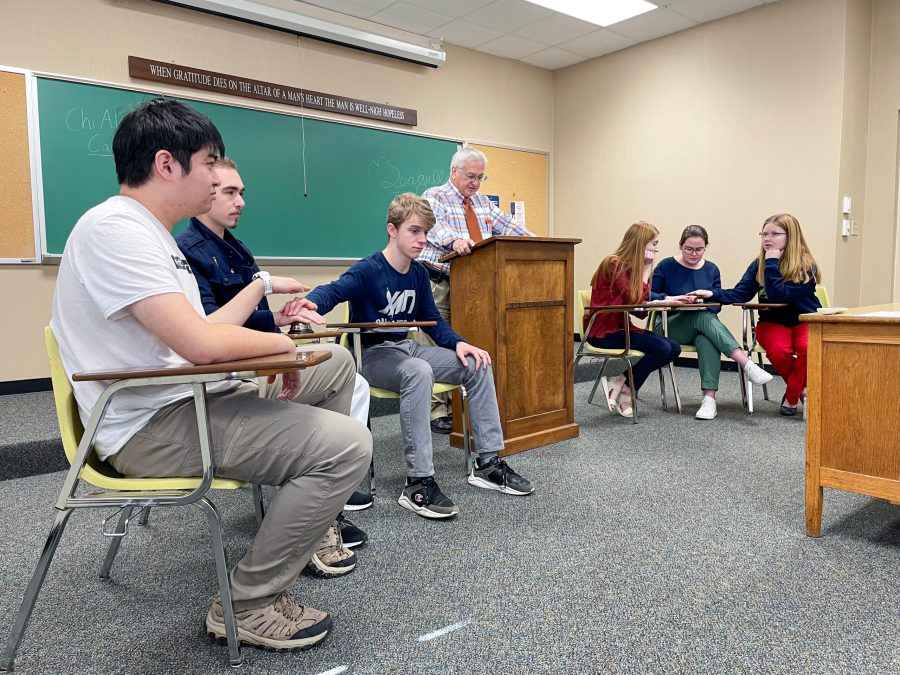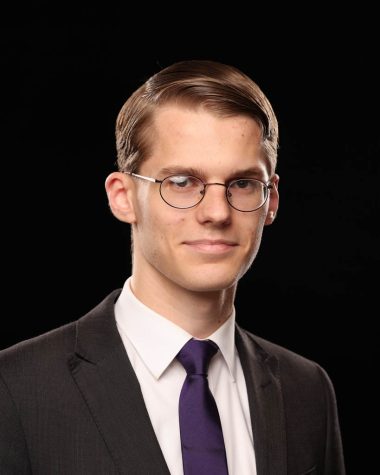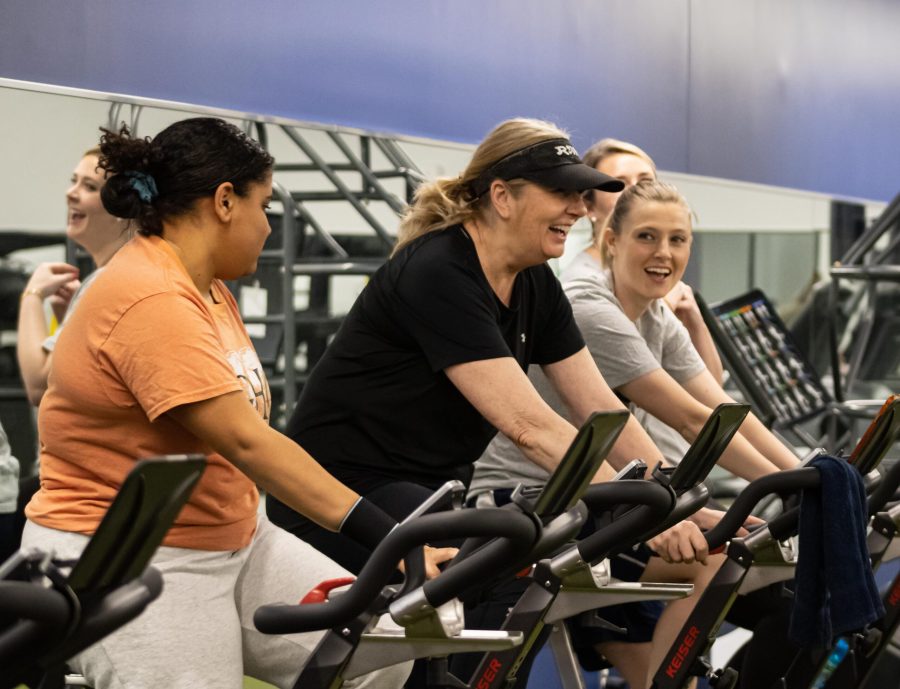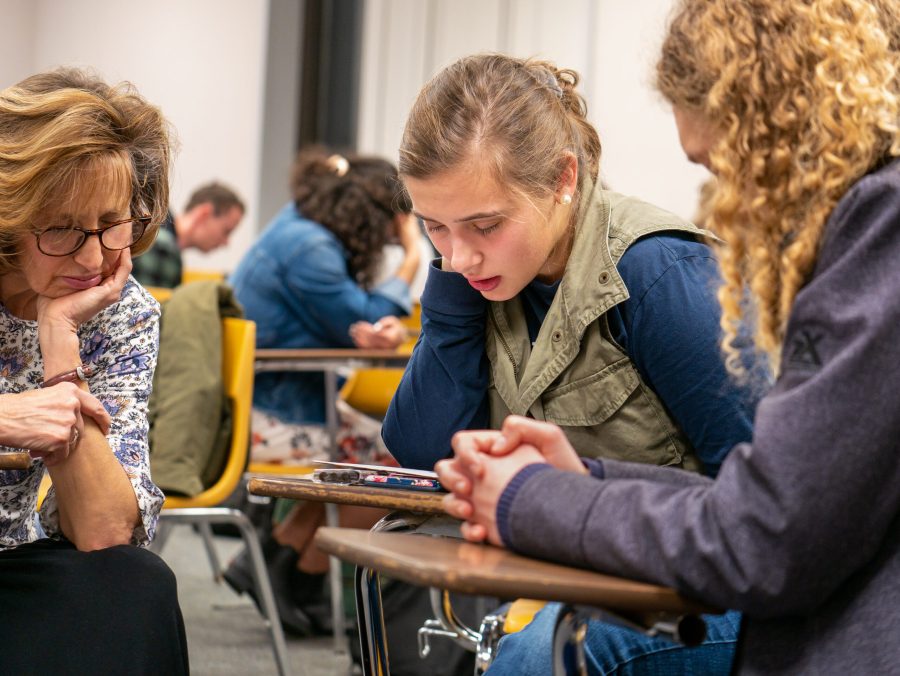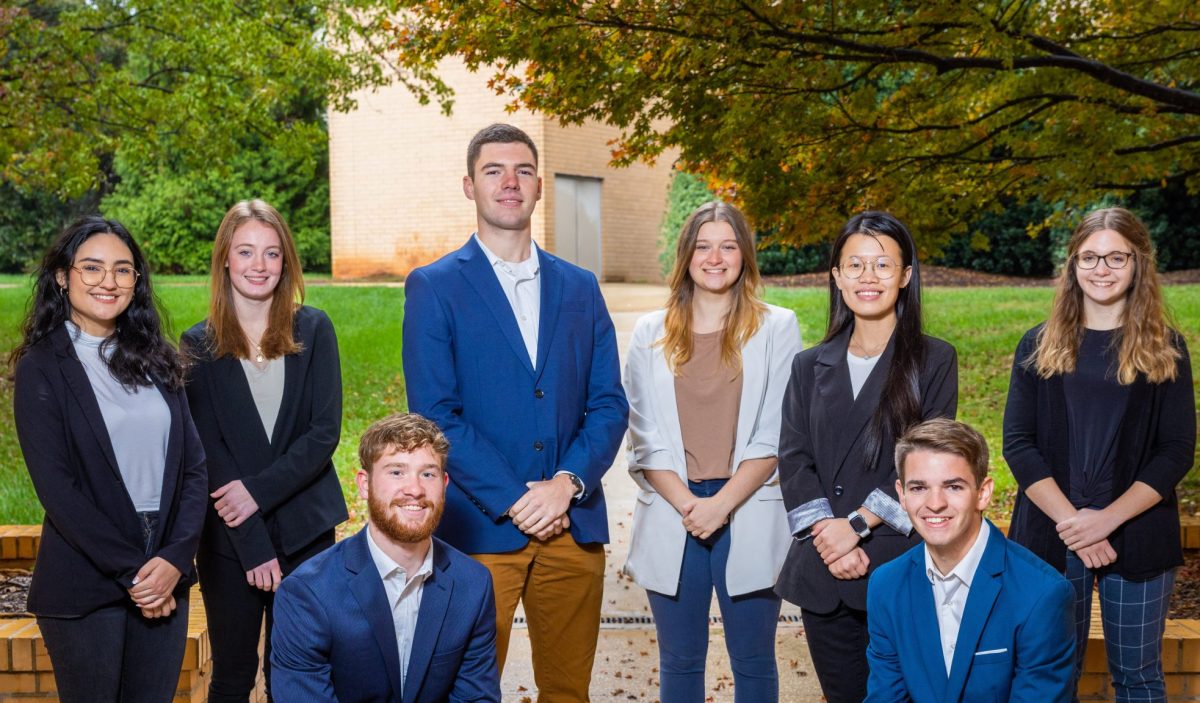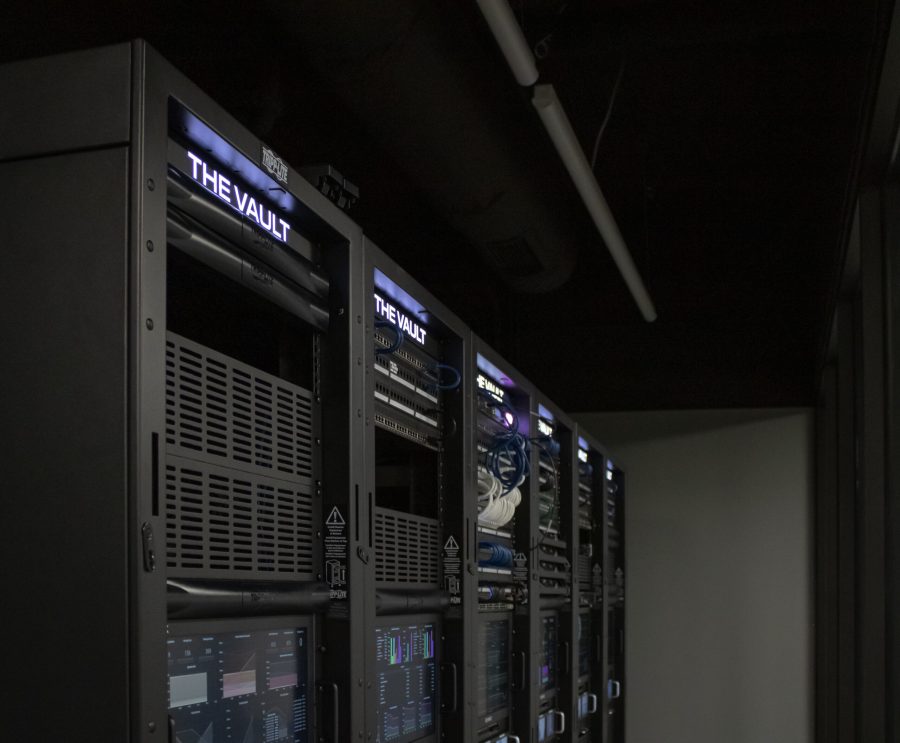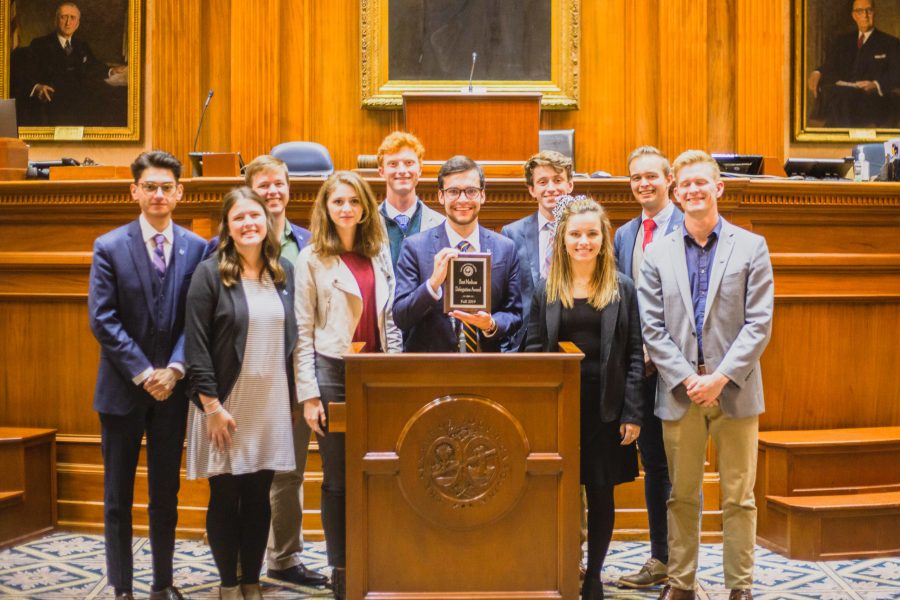What do Hungary, xylophones, Woodrow Wilson and the number 18 have in common? These were all the subject of questions in round one of Bob Jones University’s Scholastic Bowl on Feb. 24. Teams representing 14 societies gathered in Alumni Building classrooms to test their knowledge of wide-ranging topics such as poetry, presidents, paranoia and prophets.
For almost 40 years, “Schol” Bowl has entertained audiences and given students an opportunity to find out who is really paying attention in class.
The early competitions take place during regularly scheduled society meetings. Society-selected teams are matched against each other by the Center for Leadership Development. Each competition has three eight-minute rounds and three opportunities to score bonus points. During the rounds, students interrupt the faculty member reading the questions by buzzing in with the answer they think is right. Competitors often stack their hands on top of the buzzer, so prospective competitors should be warned that when the stakes get high, palms get sweaty.
Peter Labadorf, a senior computer science major on Kappa Sigma Chi’s team, prescribed a simple test for figuring out if Scholastic Bowl might be a good fit for you: “If you end up going on Wikipedia rabbit trails at all, try it!” For students who want to learn more about the competition, Labadorf suggested observing one of the later rounds where audience members are allowed. “Show up to one of the quarterfinals and see if you find yourself answering a bunch of questions in your head, then you know you could be an asset to your society.”
“I just enjoy seeing other people nerd out about things that I have no knowledge of,” said David Washer, a senior music education major on Labadorf’s team. Washer answered several questions in the competition on Friday, but, like the other students in his room, would sometimes sit and wait for time to expire on a question he didn’t know. Teams avoid making wild guesses because of the fivepoint penalty for wrong answers. Correct answers are worth 10 points.
Lindsey Mohnacky, a junior English education major on Alpha Sigma Omicron’s team, shared advice for prospective competitors. “It’s really the intramural sport of the academic world when it comes to society,” she said. “And it’s just a way to really show other people what you know, but then work together with other people as a team to achieve the same goal.”

AJ Klapperich, a senior film and digital storytelling major, is the captain of Chi Alpha Pi’s team. “I think it’s a great team building opportunity for people who may not necessarily have the inclination to participate in other sports. So you get some of that team camaraderie that you get in another sport, but in a more academic or intellectual setting. It also is a great way to help you to learn to think on your feet and to test your knowledge because sometimes you don’t think you know as much about a subject as you do.”
While it is difficult to prepare for this competition because of the broad base of knowledge required, Klapperich recommended reading books on various topics. He hopes his team will go undefeated this season, edging out societies such as Kappa Sigma Chi, which won first place last year.
Marcus Moffitt, a senior engineering major, observed how teammates with different areas of knowledge can create an effective partnership. “It’s fun to see the complementary knowledge base to be able to use what you’re learning to win a competition.” Mohnacky agreed: “Even though I’m not really good at math or science, then somebody else on my team might be and then we can kind of balance each other out, working together with the different categories that come up.”
Mohnacky also shared an awkward moment from the Feb. 24 round, “I didn’t remember an answer to a question that was about a specific author and one of my previous professors for British literature was one of the moderators and [I] talked to him afterwards, and he was disappointed I did not remember who the author was.”


























































